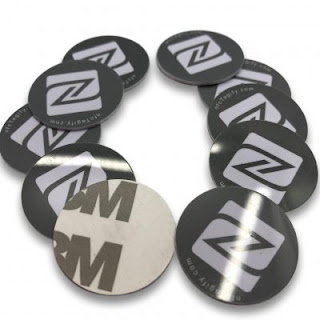Find Out the Types and Technical Details of NFC Chips
Near
field communication (NFC) is among the most versatile contactless information
sharing and transfer technologies that can be customised to suit a variety of
applications. You can use it as an innovative way to provide your contact
information to a compatible smartphone. You need an NFC chip to make that
possible. NFC chips are programmable and can store a small
amount of data, and they can be embedded in particular objects to keep them
discreet, such as cards. The NFC chip card is a popular way to carry that
information wherever you go.
How
it works
NFC chips activate
when they come in close contact with a compatible device, such as a smartphone
or an NFC reader. The operating frequency is limited to 13.56 MHz, and you need
to make sure that the chip is within a few centimetres from the device.
The NFC chip card is
passive and uses the power from the device that tapped it. That said,
sensitivity to interference is moderate, so the information being shared can be
secure as soon as the tag is locked during encoding.
Chip
types
High-quality NFC chips communicate
according to the ISO 14443 type A and B wireless standards, which are internationally
acknowledged for contactless systems. They’re also the same standards used on
public transportation access cards, which is why the NFC chip card is
also compatible with existing contactless technologies, like mobile wallet and
card payment terminals.
NFC chips come in
different types, with types 1 and 2 being the most common. Their capacities
range from 48 bytes to 2 kb of data, and they can transmit information at 106
kbit/s. It is possible to rewrite the information on those chips with the right
program. An NFC chip card with type 3 NFC transfers data at a
slightly faster rate of 212 kbit/s, making it ideal for complex applications.
However, it cannot be rewritten. Another type, Type 4, is read-only, with a
bigger memory of 32 kb and around 106 kbit/s to 424 kbit/s of communication
speeds.

Comments
Post a Comment